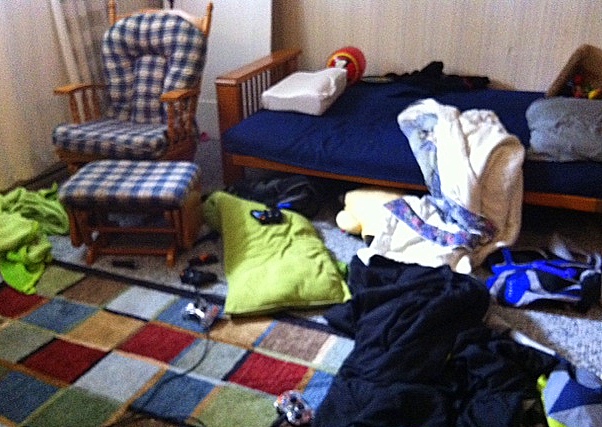It’s Time For The 3 R’s…

These 3 R’s of getting ready for the school year happen at home, including a bedtime Routine
Prince George, BC – With just over one week to go before the start of the new school year, it is the perfect time to start thinking about the three R’s…but it’s not the usual reading, writing, and ‘rithmetic…
The three R’s offered up by Northern Health’s Director of Population Health focus on preparing your family for the return of the regular fall routine. Julie Kerr says Routine sleep patterns, the Right fuel for the body, and Regular physical activity are key to kicking off the school year on a high note.
Kerr acknowledges sleep routines get thrown off during the summertime, with kids and young people staying up later and often being able to sleep in later. But, she says, "It becomes really important as you get back to a demanding schedule in the fall to think about routine sleep patterns for kids and for youth."
 Routine sleep patterns: Kerr says that means practising good ‘sleep hygiene’ by establishing a good routine. For younger kids, that might mean reading a story with parents. For older ones, reading on their own in bed, or having a bath or shower as a way to relax. ‘Screen time’ – be it computer, tv, or electronics is discouraged within an hour of going to sleep because it interferes with the body’s natural rhythmns and the ability to sleep easily. (photo at right, the ‘aftermath’ of a rec room sleepover)
Routine sleep patterns: Kerr says that means practising good ‘sleep hygiene’ by establishing a good routine. For younger kids, that might mean reading a story with parents. For older ones, reading on their own in bed, or having a bath or shower as a way to relax. ‘Screen time’ – be it computer, tv, or electronics is discouraged within an hour of going to sleep because it interferes with the body’s natural rhythmns and the ability to sleep easily. (photo at right, the ‘aftermath’ of a rec room sleepover)
When it comes to food and fluids, Kerr recommends families refresh themselves on the Canada Food Guide, perhaps even downloading a copy off the internet and posting it on the fridge. "The body needs the appropriate nutrients to stay healthy and for kids to have the energy they need to think properly and to learn well and to be active during their day."
Right fuel for the body: Kerr says it’s important to think about providing protein at breakfast. She says lots of people will grab a carbohydrate because it’s easy to grab-and-go, but protein will maintain a child’s energy so they don’t get hungry and tired mid-morning and look for a snack that’s salty, sugary, or fatty to boost them back up. Also important – water. Kerr says by the time you realize you’re thirsty, your body is already dehydrated, so it’s important to have a water bottle and hydrate throughout the day. "We discourage sweetened beverages and a lot of even naturally-sweetened fruit juices because the best thing for your body when it needs hydration is water."
NH’s Director of Population Health says just like there are recommended food guides, there are Canadian activity guidelines and sedentary behaviour guidelines. It’s important for children between the ages of 5 and 11 years to have at least 60-minutes of moderate to vigorous physical activity daily, and kids between 5 and 17 should spend no more than two hours per day in front of a screen. Kerr says the summertime affords lots of natural opportunities for being active – cycling, hiking, and camping – that often ‘fall’ by the wayside with autumn’s return.
Regular physical activity: Kerr suggests breaking the 60-minute guideline into more manageable portions of 20, 20, and 20 – 20-minutes walking to and from school, 20-minutes of activity at school during recess or the lunchbreak, and 20-minutes for family time at the end of the day. She says ‘active transportation’ like cycling is a really great way for families to maintain and improve their health.
Kerr says the coming week is the best time to work on these new routine, so kids aren’t tired and cranky when they roll out of bed next Tuesday morning – instead, they’ll be ‘on their game’ ready to meet new people, their new teacher, and adjust to all the other ‘news’ of the new school year.

Comments
Comments for this article are closed.